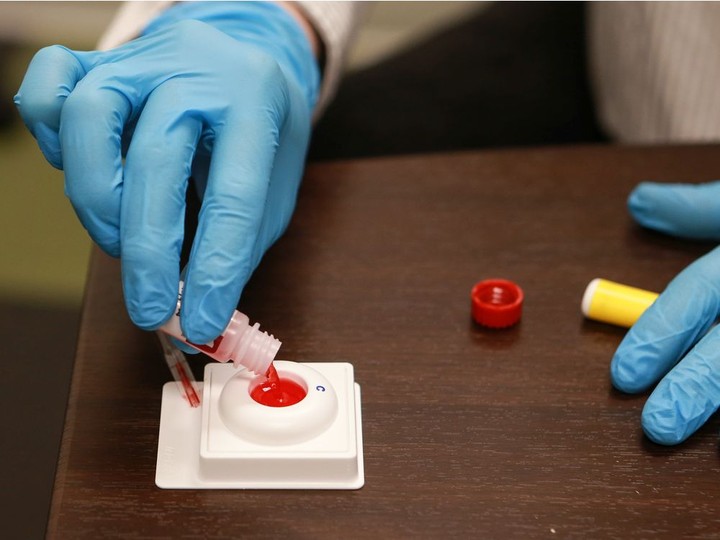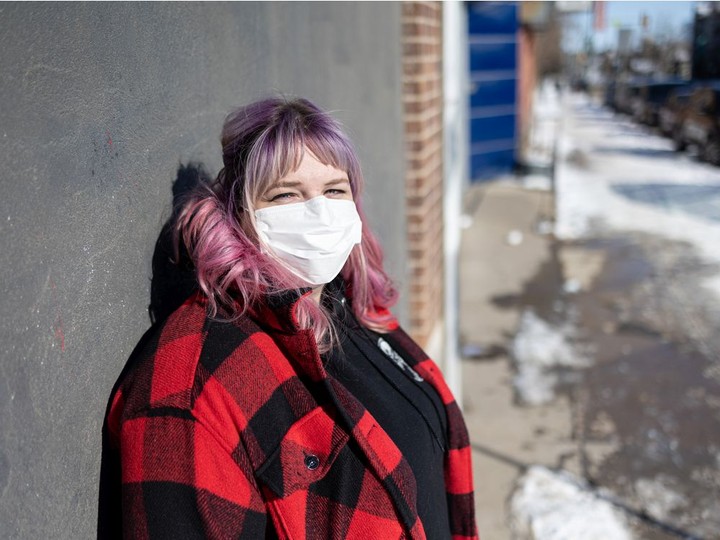saskatchewan reports record number of hiv cases in 2021
the province already had the highest transmission rate in the country, estimated at about three times the national average.
we apologize, but this video has failed to load.
try refreshing your browser, or
tap here to see other videos from our team.
tap here to see other videos from our team.
more saskatchewan residents were diagnosed with hiv in 2021 than any year prior, a setback in a decades-long fight to get the province’s sky-high transmission rates under control. the province, which already had the highest rates of the virus in canada, reported 237 new cases last year — a record total doctors say shows worsening inequities that abet hiv’s spread.
dr. johnmark opondo, a top public health physician, said the covid-19 pandemic hampered access to care including hiv testing. but, he says, the high case loads are not only a reflection of delayed diagnoses.
“i think if we blame it all on that, that’s a misrepresentation,” said opondo, a medical health officer with the saskatchewan health authority.
“i also believe our transmission dynamics have intensified. this increase in numbers is not just artifactual catching up in testing.”
saskatchewan’s hiv transmission rates are routinely two to three times the national average and the highest in the country.
it is the only province where injection drug use — not sex — has historically been the leading cause of transmission. in 2021, the provincial ministry said half of people newly diagnosed with hiv reported injecting drugs, a significantly lower percentage than previous years. sexual contact was identified as a risk factor in 68 per cent of new cases. the two are not mutually exclusive.
advertisement
“heterosexual transmission has actually emerged and become more and more of a factor,” opondo said.
he cautioned it was too soon to call it a change in how the virus spreads and stressed injection drug use is likely still the primary driver of new cases.
some frontline doctors, though, say they’ve noticed a real shift in who the virus is affecting.
“isolating this illness to be amongst drug users is not an appropriate way to interpret this information,” said dr. larissa kiesman, a physician at saskatoon’s westside community clinic, a hub for hiv care.
modern medicine means people with hiv can live long and healthy lives, have children and have sex without fear of transmitting the virus to a partner. but that hinges on people knowing they are hiv-positive and managing it with medication.

an hiv rapid test and blood draw are performed at sexual health saskatoon. photo taken in saskatoon on oct. 15, 2020.
michelle berg
/
saskatoon starphoenix
opondo said that is a challenge when many people who use drugs are also grappling with poverty, homelessness and concurrent mental health disorders.
“what we’re seeing is that we don’t have enough people engaging with the health care system to take these easy treatments,” kiesman said.
she believes that failure to stop hiv in its tracks means it is now circulating more widely in other populations.
“it’s not an attempt to fear monger. but i’ve been doing this for over a decade and i’ve seen the trends for a long time. we’re not containing hiv,” she said.
advertisement
dr. francois reitz, a family physician who works at saskatoon sexual health, noted a number of sexually transmitted infections are on the rise not just in saskatchewan but across the globe. the province continues to see skyrocketing rates of syphilis, just like its prairie neighbours. reitz said access to testing for such illnesses was limited during the first two years of the pandemic.
“for at least six to nine months, i would say saskatoon sexual health was one of the only places you could come in and get your testing done,” reitz said.
no one likes the numbers, but reitz said it is better to be testing and recording more cases of hiv than to have people go undiagnosed.
“we’ve always believed they are there. they just haven’t been tested,” he said, though he and others agree that is not the only factor. saskatchewan performed 78,858 hiv tests in 2021; more than the previous year but lower than before the pandemic.
“it’s never a bad thing to find new positives. but for me personally and anecdotally, i’m getting completely swamped with new positives,” infectious disease physician dr. alex wong said.
reitz said a good deal of the work connecting with those patients is done by non-profit organizations like saskatoon sexual health and prairie harm reduction, which serves people who use drugs in saskatoon.
advertisement
“it is the hardest population to engage in services and to continue to engage in services,” phr executive director kayla demong said.
she says what dollars are available federally are usually earmarked for other populations affected by hiv. provincially, she says, cash from the province’s hiv strategy is helpful, but not enough. kiesman said people in saskatoon still die of aids because their hiv is not caught or managed. last year, two babies were born with hiv in saskatchewan, something timely access to medication can almost always prevent.

prairie harm reduction’s new ed, kayla demong, stands for a photo outside of their building on 20th street west on march 9, 2022.
michelle berg
/
saskatoon starphoenix
“that is appalling. we have third-world statistics here because of the lack of supports in our community,” demong said.
saskatoon sexual health education and outreach coordinator natalya mason says the figures validate concerns sexual health advocates had early in the pandemic that cases would go unfound, allowing hiv and other illnesses to spread more widely.
“it really created a situation where these infections were happening free rein,” she said.
she, wong and reitz said ramping up testing and access to it will be a critical part of the solution. reitz said detecting and stopping hiv and other stis will take a mix of outreach, testing, more support for family medicine and wraparound support. in short: it won’t be easy.
advertisement
“i don’t think the solution is simple,” reitz said. “i don’t think the solution is easy. and i don’t think the various bits and pieces are going to be easy or cheap in their rollout.”
the news seems to be flying at us faster all the time. from covid-19 updates to politics and crime and everything in between, it can be hard to keep up. with that in mind, the saskatoon starphoenix has created an afternoon headlines newsletter that can be delivered daily to your inbox to help make sure you are up to date with the most vital news of the day. click here to subscribe.
 4 minute read
4 minute read
